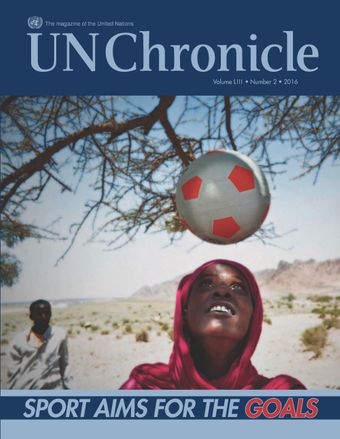-
Play it forward: The untapped potential of sport to accelerate global progress towards gender equity
- Source: UN Chronicle, Volume 53, Issue 2, Aug 2016, p. 17 - 21
- French
-
- 08 Aug 2016
Abstract
We are at a point in history where it is possible find to gender-equitable spaces in the world. The Parliament of Rwanda. A classroom in Iceland. Perhaps your local coffee shop. Sport, however, is not one of those spaces. It is, arguably, one of the last frontiers of gender equity. It is the place where discrimination against women and male domination are broadly considered reasonable and acceptable, despite the right to sport being enshrined in international conventions such as the Convention on the Elimination of All Forms of Discrimination against Women (CEDAW) and the Convention on the Rights of the Child. A girl in Mumbai, India, is still most often not welcome to step up to bat at the local cricket ground. Even in the most visible sporting environments, arcane attitudes and practices persist. This is evidenced by the fact that less than 1 per cent of voting members of the Fédération Internationale de Football Association (FIFA), the governing body of the world’s most popular sport, are women.
© United Nations



